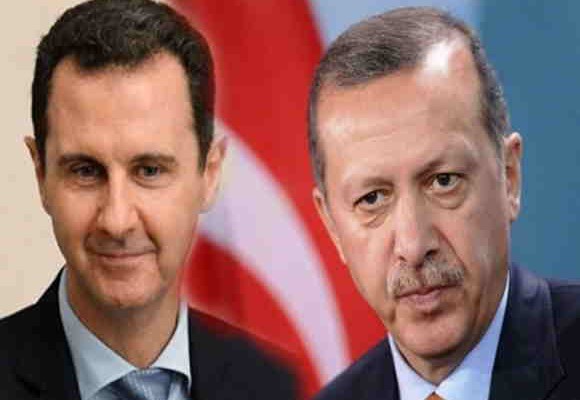Will Asad agree to meet Erdogan?

The Russians and Iranians are pressing hard for a reconciliation summit before the Turkish elections
When Iranian President Ebrahim Raisi visits Damascus next week he will have many important strategic issues to discuss in his talks with his counterpart Bashar al-Asad. This first visit by an Iranian president since war broke out in Syria in 2011 comes at a time when the Middle East region is on the verge of major political changes. A new map of alliances is taking shape and as a result of the rising tensions new regional wars have started or are waiting to start.
The Iranian president is going to Syria after signing a historic agreement with Saudi Arabia, and just days ahead of two pivotal events: an anticipated visit by Asad to Riyadh, and the holding of an Arab summit in the Saudi capital on 19 May at which Syria is set to regain its seat in the Arab League.
Syria’s return to the Arab fold looks like a done deal. The big issue Raisi will be tackling is the normalisation of Syria’s relations with Türkiye, and the prospect of Asad holding a summit with President Recep Tayyip Erdogan ahead of crucial presidential and parliamentary elections with the aim of improving his chances of winning.
It is no longer a secret that both the Russians and Iranians do not want the six-party opposition coalition headed by Republican Peoples Party (CHP) leader Kemal Kilicdaroglu to win, because unlike Erdogan he is on good terms with the United States. But Asad, justifiably, does not trust the incumbent Turkish president who has repeatedly dealt him deadly stabs in the back. He would prefer to await the outcome of the elections before holding such a meeting so he knows what president and government he will be dealing with. He does not, as the famous saying goes, want to buy fish that are still swimming in the sea.
Asad has withstood enormous pressure from his two closest allies, Russia and Iran, to agree to such a meeting. He is holding on to his precondition that Turkish troops must first withdraw completely from northern Syria and restore it to national sovereignty. He believes Erdogan, who is trailing in the opinion polls, wants to exploit the proposed reconciliation summit to gain electoral advantage and could renege on any promises he makes after he wins. He has a track record in this respect, notably after his 2019 Sochi agreement with President Putin at which he vowed to remove all terrorist-designated armed groups from the Idlib and Rural Aleppo regions.
The Russians have their own strategic priorities, especially winning the war in Ukraine against the US-led coalition. They see Erdogan — whose relations have deteriorated with the US while strengthening with Russia in political, economic, and military terms — as their best bet. A victorious opposition could turn Türkiye into a US military outpost on Russia’s southern border and step up its export of drones. military equipment and ammunition to Ukraine. The Iranian leadership shares Russia’s view completely and unreservedly.
The participation of Syria’s defence minister in a recent meeting in Moscow with his Russian, Iranian, and Turkish counterparts reflected newfound flexibility on Damascus’ part and a tangible change of approach. This remains unexplained. Syrian media denunciation of Turkey has also reportedly eased off in recent days.
The big question now is what guarantees Russia and Iran can give that Erdogan will live up to any commitment to withdraw Turkish troops and terrorist-designated groups from Syria if he wins re-election. Will any such undertakings be convincing enough to enable Erdogan to achieve his goal of holding a face-to-face reconciliation meeting with Asad in Moscow under the auspices of the Russian and Iranian presidents?
It’s a big gamble for the Syrian side. Erdogan’s re-election cannot be guaranteed, nor his honouring of any commitments he makes. The only positive element for Asad is that the opposition wants good-neighbourly relations with his country, to repatriate all Syrian refugees (numbering around four million and increasingly unwelcome) in agreement with Damascus and under its supervision, withdraw all Turkish forces from Syrian territory, and revert to 1998 Adana border security agreement.
We will have to wait for Raisi’s two-day visit to conclude before seeing whether Asad has persuaded his guest of his reservations about a summit with Erdogan or vice-versa. I’m inclined to think that Asad, who has for months resisted Russian pressure and avoided meeting his Turkish nemesis, will ultimately be persuaded to shake hands with Erdogan in front of the TV cameras — but with an extremely reserved smile on his face.
https://www.raialyoum.com/will-asad-agree-to-meet-erdogan/
 TheAltWorld
TheAltWorld 
0 thoughts on “Will Asad agree to meet Erdogan?”